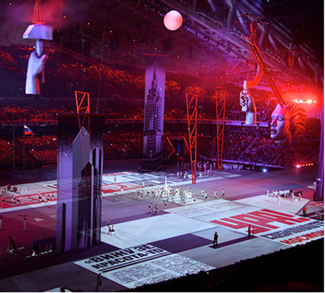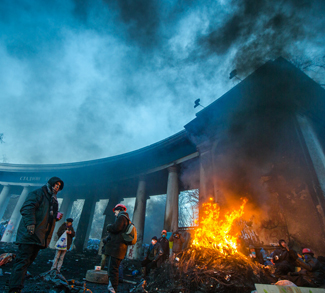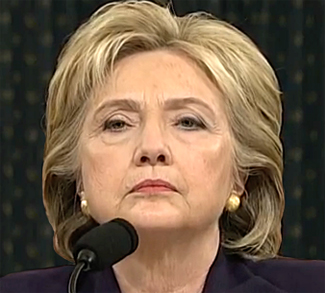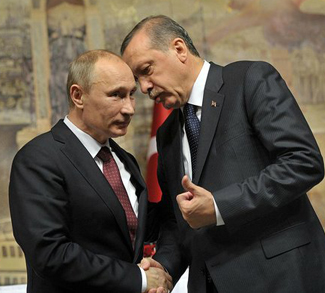It has been wonderful to see the show of solidarity that Western nations have demonstrated before and during the Sochi Olympics, rallying in protest on a global stage against Russia’s awful law targeting homosexuals. Here in Halifax, a rainbow flag proudly flies in front of City Hall, while Germany proudly marched in the opening ceremonies wearing uniforms that distinctly looked like rainbows. Google altered its logo, not an unusual event, to reflect its stance against this openly discriminatory and unjust law which has been enacted and enforced in Putin’s Russia.
It’s a masterful how the international community has found a way to actively participate in the Sochi Olympic Games, yet pointedly express a deep-seated opposition to this heinous legislation. And it has been wonderful to watch much of the world come together in defending gay rights.
That being said – all of this postulating against the law is playing right into Putin’s palm.
First, let’s step back a bit.
Putin was faced with a very real conundrum after Sochi was awarded the 2014 Olympic Games by the International Olympic Committee in 2007. Bringing the Olympics to Russia was assuredly a coup de grace for his government, which has long aimed to return Russia to its (rightful, in some minds) predominant place in world affairs.
But hosting the Olympics also brings an at-times uncomfortable focus on the host country, which would undoubtedly raise uncomfortable, if necessary, questions about corruption and political repression in Russia.
Thankfully for Putin, he is no novice when it comes to diverting the public’s attention when necessary. A relevant skill, really, for any dictator – and an absolutely necessary one for a country which looms so large on the world stage as does Russia.
Months of intensifying domestic rallies against Putin’s regime throughout 2012, led by Alexiy Navalny, brought global attention to Russia’s less-than-democratic system of governance, and many observers awaited the fall of Putin and his cronies from power. How could a government withstand week after week of growing crowds disrupting the streets of Moscow, demanding reforms and an end to Putin’s particular style of power?
Putin was saved by the awful tale of a US woman who, after adopting a Russian child, sent the child back on a plane, unaccompanied, with a note strapped to his shirt, detailing how he was too difficult to handle and that she was returning him to his home country.
The Russian leader adeptly seized upon this opportunity, railing against adoption of Russian children by foreigners – and most particularly adoptions by US citizens – riling up the populace enough to sufficiently ride out the storm that had been brewing just outside the doors of the Kremlin.
Serious threat, diffused.
And so, as the Olympics approached, Putin knew precisely what to do: implement a law that would surely raise the ire of many a Western commentator, and in doing so drown out any penetrating criticisms of the Russian government.
There is no doubt that the anti-homosexual law engendered a few friends for Putin in Russia’s vast interior. Bolstering domestic support for his regime is integral to any politician’s hold on power. But Putin knew that by implementing such a controversial law, he would create such a firestorm in the international media that all the focus would be on this law – thus protecting his regime and his abuses of power from any real criticism in the international press.
This is where Google et al. are misguided. The abuses of Putin’s power lie not solely in the ludicrous targeting of homosexuals, but also in the crackdown against legitimate opponents of the regime, journalists working to uncover the truth, and the many, smaller injustices suffered by the Russian citizenry – all of which have long persevered under Putin’s rule.
Putin recognized this. He understood in the trend of Western governments legalizing same sex unions that his particular law would become a flashpoint, instantly and effectively inflaming global opinion, and allowing gay-rights campaigns to handily supplant the calls for democratic governance that might have otherwise emerged.
So long as the focus remains on the law, and not anything beyond the law, Putin has won the public relations battle surrounding the Olympics.
This is why it’s so important not to limit protests to the anti-homosexuality law – which will either disappear or at the very least, cease to be as rigorously enforced after the Olympic flame is extinguished in Sochi – and to extend these criticisms to all aspects of Putin’s governmental system, from his crackdown on media to his imposed limitations on a viable opposition movement.
It may be too late; criticisms of the Olympics visiting Sochi hit a high point well before the Olympic flame was lit, and in true Olympic spirit, politics have taken a back burner to sporting competitions.




